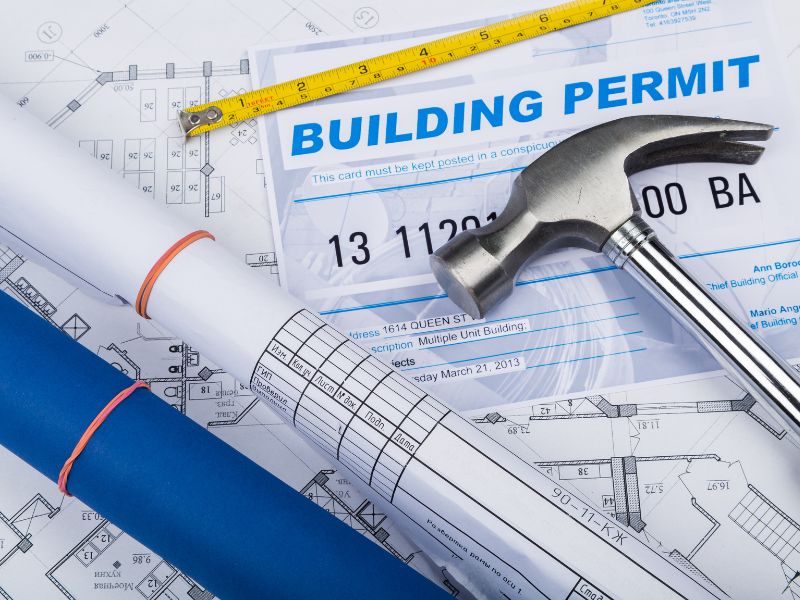
Embarking on a home construction project is an exciting endeavor, but navigating the permitting process can often seem like a daunting task. Understanding the ins and outs of obtaining construction permits is crucial to ensure a smooth and successful building process. We will break down the essentials of the home construction permit process, providing you with the knowledge you need to navigate this crucial step with confidence.
Why Permits Matter:
Start by understanding why permits are essential. Permits are not just bureaucratic hurdles; they serve to ensure that your construction project complies with local building codes and regulations. This, in turn, helps guarantee the safety and structural integrity of your home.
Types of Permits:
Familiarize yourself with the various types of permits you might need. Common permits include building permits, electrical permits, plumbing permits, and zoning permits. Each serves a specific purpose, and your project may require one or more of these permits.
Research Local Regulations:
Regulations can vary significantly from one locality to another. It’s crucial to research and understand the specific regulations and codes governing construction in your area. Local government websites and offices are valuable resources for obtaining this information.
The Application Process:
Walk through the steps of the application process. This typically involves submitting detailed plans and specifications of your project to the local building department. Be prepared for possible reviews and revisions during this phase.
Timeline and Expectations:
Understand that the permitting process takes time. Factor this into your overall project timeline. Delays can occur, so it’s essential to plan accordingly. Knowing what to expect can help reduce frustration and anxiety.
Common Pitfalls to Avoid:
Learn from the mistakes of others by understanding common pitfalls in the permit process. These may include incomplete applications, failure to obtain necessary inspections, or not adhering to specified timelines. Being aware of these pitfalls can help you avoid unnecessary setbacks.
Working with Professionals:
Consider enlisting the help of professionals, such as architects, engineers, or contractors, who have experience navigating the permit process. Their expertise can streamline the application process and ensure that your project complies with all regulations.
Budgeting for Permits:
Don’t forget to factor permit costs into your budget. Permit fees can vary based on the scope of your project and local regulations. Be sure to account for these costs to avoid financial surprises.
Inspections and Compliance:
Understand that inspections are a crucial part of the permitting process. Be prepared for multiple inspections at different stages of construction. Compliance with these inspections is essential for obtaining the final approval.
Navigating the home construction permit process may seem complex, but with proper knowledge and preparation, it can be a manageable and even empowering experience. By following these guidelines, you’ll be better equipped to ensure that your construction project meets all necessary requirements, paving the way for a successful and safe home.
Remember, each construction project is unique, so it’s essential to adapt these general guidelines to your specific circumstances and local regulations. Good luck with your home construction journey!



